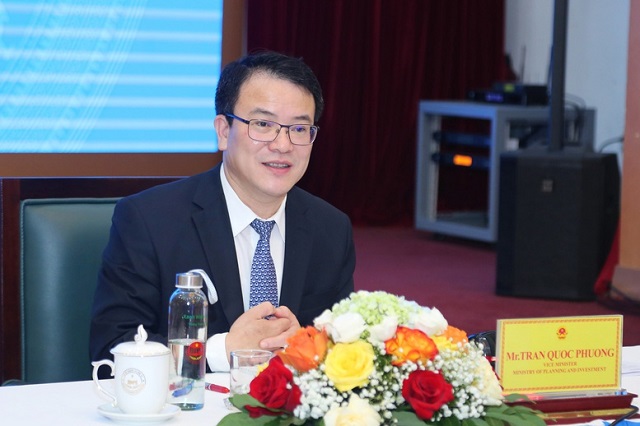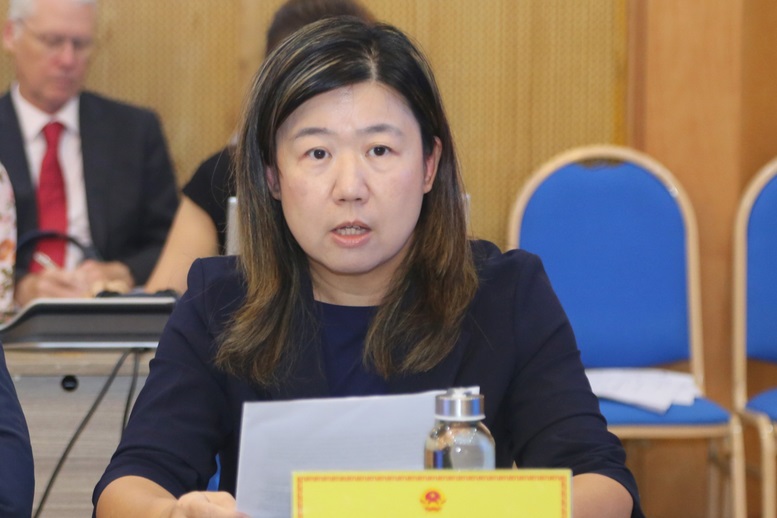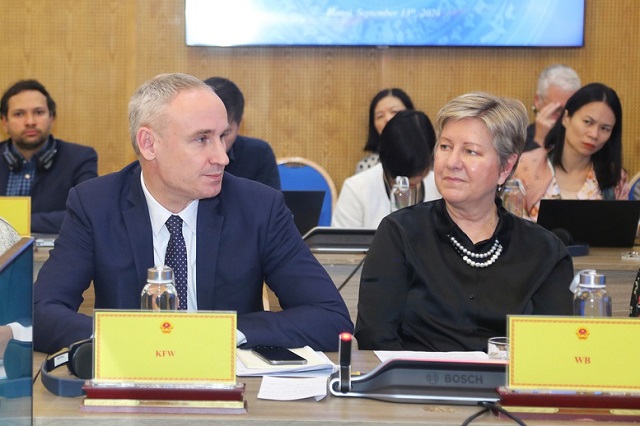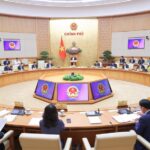 |
Deputy Minister of Planning and Investment Tran Quoc Phuong chaired the meeting.
|
Chairing the meeting, Deputy Minister of Planning and Investment Tran Quoc Phuong said that the Ministry has reviewed and reported to the competent authorities on the amendment of public investment legal regulations towards simplifying procedures, including 29 new policies focusing on five groups of areas.
“One of the five groups of amended policies is to promote the implementation and disbursement of ODA and preferential loans from foreign donors by designing a separate chapter,” shared Deputy Minister Tran Quoc Phuong.
This amendment to the Public Investment Law is very comprehensive and urgent, with high-quality requirements to fundamentally address difficulties, limitations, bottlenecks, and blockages, as well as to enhance capital efficiency and unlock resources for development. The amended Public Investment Law is expected to be passed at the upcoming 8th session of the National Assembly.
At the workshop, representatives of development partners highly appreciated the draft Amended Law on Public Investment, especially the policies on ODA projects. The mechanisms and policies are considered superior.
The delegates also discussed the contents of the draft, including decentralization and devolution in project approval and implementation, simplification of project investment procedures, and separation of compensation and site clearance into independent projects…
At the same time, the donors also hoped that the Government would soon issue a decree to guide the implementation of the law as soon as it takes effect.
Mr. Pham Hoang Mai, Director of the Foreign Economic Relations Department, Ministry of Planning and Investment, said that when designing the ODA chapter, the drafting committee prioritized resolving difficulties and obstacles in ODA project implementation.
The draft decentralizes more authority to the People’s Committees and managing agencies. These decentralizations are in line with domestic legal policies. Accordingly, non-refundable aid projects are decentralized to the provincial People’s Committees.
Notably, previously, projects could only be disbursed and implemented when there was a medium-term plan and an annual public investment plan. Many development partners have commented on the need to supplement the annual plan, which will affect the implementation progress. Now, the draft Amended Law on Public Investment allows for implementation and reporting to the competent authority afterward (ex-post).
 |
Ms. Susan Lim, Senior Portfolio Management Expert, Resident Mission in Vietnam of the Asian Development Bank (ADB), shared at the workshop.
|
According to Ms. Susan Lim from the Asian Development Bank (ADB), the main objective is to make the most effective use of ODA capital. Ms. Susan also highly appreciated the significant changes in the draft, such as simplifying procedures, delegating more authority, and reducing time, especially at the local government level.
“For emergency projects, ADB proposes specific regulations to use ODA more effectively, for example, projects on natural disasters, floods, and climate change,” Ms. Susan Lim suggested.
 |
Mr. Daniel Plankermann, Director of the German Reconstruction Bank in Vietnam.
|
Mr. Daniel Plankermann, Director of the German Reconstruction Bank in Vietnam, said that the impact of the changes in the policies is positive, helping to unlock the potential in the implementation of ODA projects. It is important to also change other legal documents to ensure consistency and synchronization.
“During the transition process, there will be risks due to policy changes. How to simplify the transition process so that the projects under preparation can also benefit is an issue of concern,” said Mr. Daniel.
On this issue, Deputy Minister Tran Quoc Phuong said that the draft Law has mentioned the issue of building a decree and will be completed when the Law is passed. At the same time, the Government is also urgently developing a decree related to the Land Law and Housing Law.
The Ministry of Planning and Investment will try to design policies so that projects under preparation can also benefit and clearly define the conditions for these projects.








































